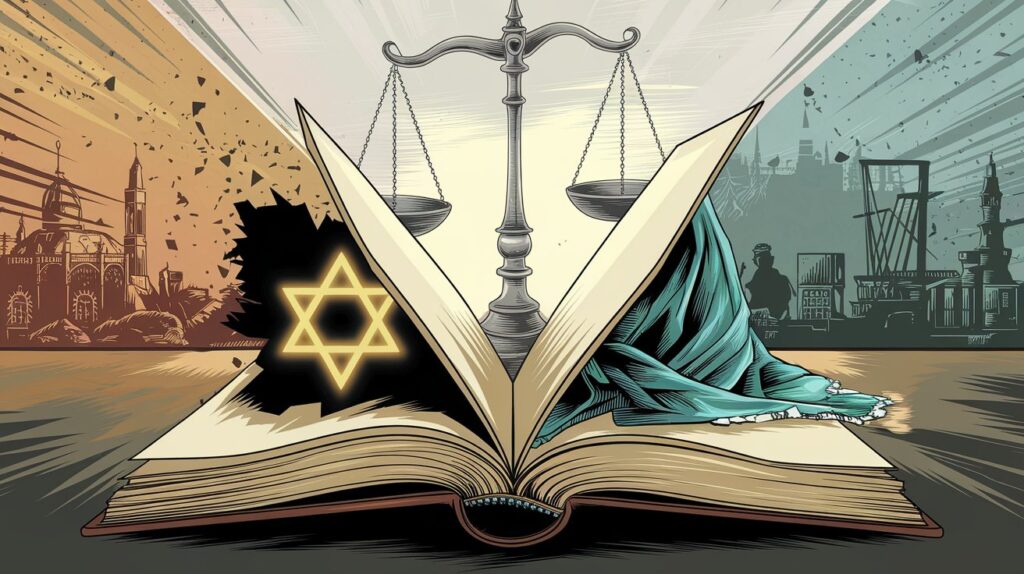In his latest book, Being Jewish After the Destruction of Gaza: A Reckoning, Peter Beinart confronts the ethical crisis facing Jewish identity in light of Israel’s actions in Gaza. His thought-provoking critique urges a fundamental reevaluation of Jewish values, Zionism, and justice for Palestinians

Peter Beinart’s Moral Reckoning: Reassessing Jewish Identity After Gaza
In a recent interview on Democracy Now!, Peter Beinart—editor-at-large of Jewish Currents and professor at the City University of New York—delved into the central themes of his new book, Being Jewish After the Destruction of Gaza: A Reckoning. Beinart’s work challenges Jewish communities to critically examine the ethical implications of Zionism and Israel’s treatment of Palestinians. His argument is rooted in the belief that a tradition that emphasizes the infinite dignity of every human being cannot, in good conscience, support policies that systematically oppress another people.
Challenging the Ethics of Zionism
Beinart, once a staunch supporter of a two-state solution, has undergone a significant ideological shift over the past decade. His transformation was shaped by direct interactions with Palestinians and a deeper engagement with the historical realities of Zionism. In his book, he argues that Zionism, in its current political form, has become an exclusionary project that prioritizes Jewish political dominance at the expense of Palestinian rights.
During his Democracy Now! interview, Beinart critiqued former U.S. President Donald Trump’s proposal for the United States to take control of Gaza and forcibly relocate its Palestinian population. He called this a textbook case of ethnic cleansing, reminiscent of 19th-century colonial practices that sought to erase entire populations deemed undesirable. Beinart did not mince words: he asserted that such actions should be prosecuted as war crimes.
Jewish Identity and the Sacredness of the State
A central theme of Beinart’s book is the evolving relationship between Jewish identity and the State of Israel. He recalls his upbringing in a family where Israel was central to Jewish life, primarily as a post-Holocaust refuge. However, his firsthand experiences in the West Bank forced him to confront a difficult reality: for Palestinians, the founding of Israel meant displacement, exile, and suffering.
Beinart argues that Jewish identity has become entangled with an almost religious veneration of the Israeli state. This, he warns, is a form of idolatry—worshipping a nation-state rather than adhering to the ethical teachings of Judaism, which emphasize justice, dignity, and equality. If Jewish ethics truly uphold the sanctity of every human life, then Israel’s treatment of Palestinians must be subject to the same moral scrutiny as any other nation’s human rights violations.
The Right to Return and Coexistence
One of the most contentious aspects of Beinart’s argument is his advocacy for the Palestinian right of return. Many residents of Gaza are descendants of refugees who were expelled from their homes in what is now Israel. Beinart asserts that these individuals should have the right to return—not to displace Israeli Jews, but to live alongside them as equals. He envisions a future where Jewish and Palestinian lives are valued equally, rather than one group holding dominance over the other.
The Silence of Jewish Institutions
Beinart also critiques major Jewish organizations, such as the Anti-Defamation League (ADL) and the American Jewish Committee (AJC), for their selective application of moral outrage. These groups have historically supported international courts when condemning genocide in Bosnia and Rwanda, yet they resist applying the same standards to Israeli actions in Gaza. Beinart views this as a profound moral failure that undermines Jewish ethical credibility.
A Generational Shift in Jewish Communities
The Jewish community is far from monolithic in its views on Israel. Beinart highlights a growing generational divide: while older Jewish institutions remain staunchly pro-Israel, younger Jewish activists are increasingly critical of Zionism and more vocal in their support for Palestinian rights. This shift is reshaping the conversation around Israel within Jewish communities, despite institutional resistance.
Conclusion: A Call for Ethical Consistency
Peter Beinart’s Being Jewish After the Destruction of Gaza is not merely a critique of Israeli policies; it is a profound moral reckoning with Jewish identity in the 21st century. He challenges Jewish communities to live up to their ethical principles by confronting the suffering inflicted upon Palestinians. Beinart’s book is a call to action—urging Jews to return to the core values of justice, human dignity, and equality rather than allowing nationalism to overshadow their moral responsibilities.
As the debate over Israel and Palestine continues, Beinart’s work serves as a critical touchstone for those willing to ask difficult questions and seek a more just future for all.


